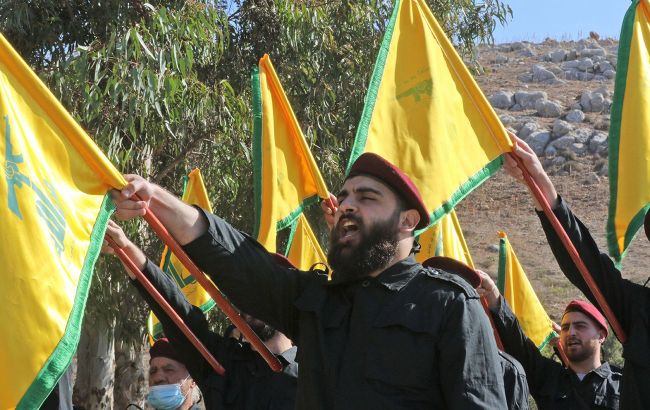Hezbollah launched hundreds of missiles and drones at Israel
 Photo: Hezbollah terrorists began to take revenge on Israel for the killing of their commander (Getty Images)
Photo: Hezbollah terrorists began to take revenge on Israel for the killing of their commander (Getty Images)
On Sunday, August 25, the Lebanese militant group Hezbollah fired hundreds of rockets and drones at Israeli territory, reports Reuters.
Militants reported that they launched over 320 Katyusha rockets at Israel and struck 11 military targets. According to them, the attack marked the "first phase" of their response to the killing of Fuad Shukr, a senior commander in Beirut, but a full response will take "some time."
The Israeli Cabinet was scheduled to convene at 7:00 a.m. local time (6:00 a.m. Kyiv time) to prepare an appropriate response to the attacks.
Israel’s response
In northern Israel, warning sirens were heard and numerous explosions were reported in several areas as Israel’s Iron Dome air defense system intercepted rockets fired from southern Lebanon. According to emergency services, there were no reported casualties in Israel.
Defense Minister Yoav Gallant stated that Israel would do everything necessary to protect itself.
“We have conducted precise strikes in Lebanon in order to thwart an imminent threat against the citizens of Israel. We are closely following developments in Beirut, and we are determined to use all the means at our disposal in order to defend our citizens,” he said.
Gallant declared a state of emergency, and flights to and from Ben-Gurion Airport in Tel Aviv were suspended. However, airport authorities stated that normal operations would resume by 7:00 a.m. local time.
Preventive strike by Israel
Israeli Army Radio, citing officials from the defense ministry, reported that, according to military assessments, Hezbollah was preparing to launch hundreds of rockets at central Israel during a planned attack at 5 a.m.
About 100 Israeli aircraft disrupted the terrorists' rocket strikes, which had begun half an hour earlier, according to the report. The military assessed further attacks by Hezbollah as "improvised."
Heavy bombardment of Lebanon
A security source in Lebanon reported that at least 40 Israeli strikes were carried out on various cities in the south of the country, marking one of the densest bombardments since the beginning of hostilities last October.
A resident of the southern Lebanese city of Zibqeen, located approximately 7 km from the border, told Reuters that he woke up "to the sound of planes and the loud explosions of rockets - even before the dawn prayer. It felt like the apocalypse."
Risk of a broader Middle Eastern war
It should be noted that Israeli military intelligence had information about Hezbollah’s preparations for the attack. Shortly before the assault, the IDF struck militant targets in Lebanon.
Lebanese militants are retaliating for the killing of Hezbollah’s chief military commander Fuad Shukr in Beirut by Israelis on July 31. On the same day, a political leader of Hamas, Ismail Haniyeh, was bombed in Tehran.
These two killings have significantly escalated the confrontation between Iran, the Islamic movements it supports, and Israel.
Throughout August, Hezbollah has been attacking northern Israel almost every night. The IDF has been carrying out retaliatory strikes in southern Lebanon.
On August 21, the Israeli army struck terrorist targets in the Zarit and Kfarkela areas in southern Lebanon.
On August 20, the IDF targeted Hezbollah positions in the Matmoura area and Islamist weapon storage sites in the Bekaa region.
Additionally, in recent days, Israelis have killed several high-ranking Hamas terrorists.

